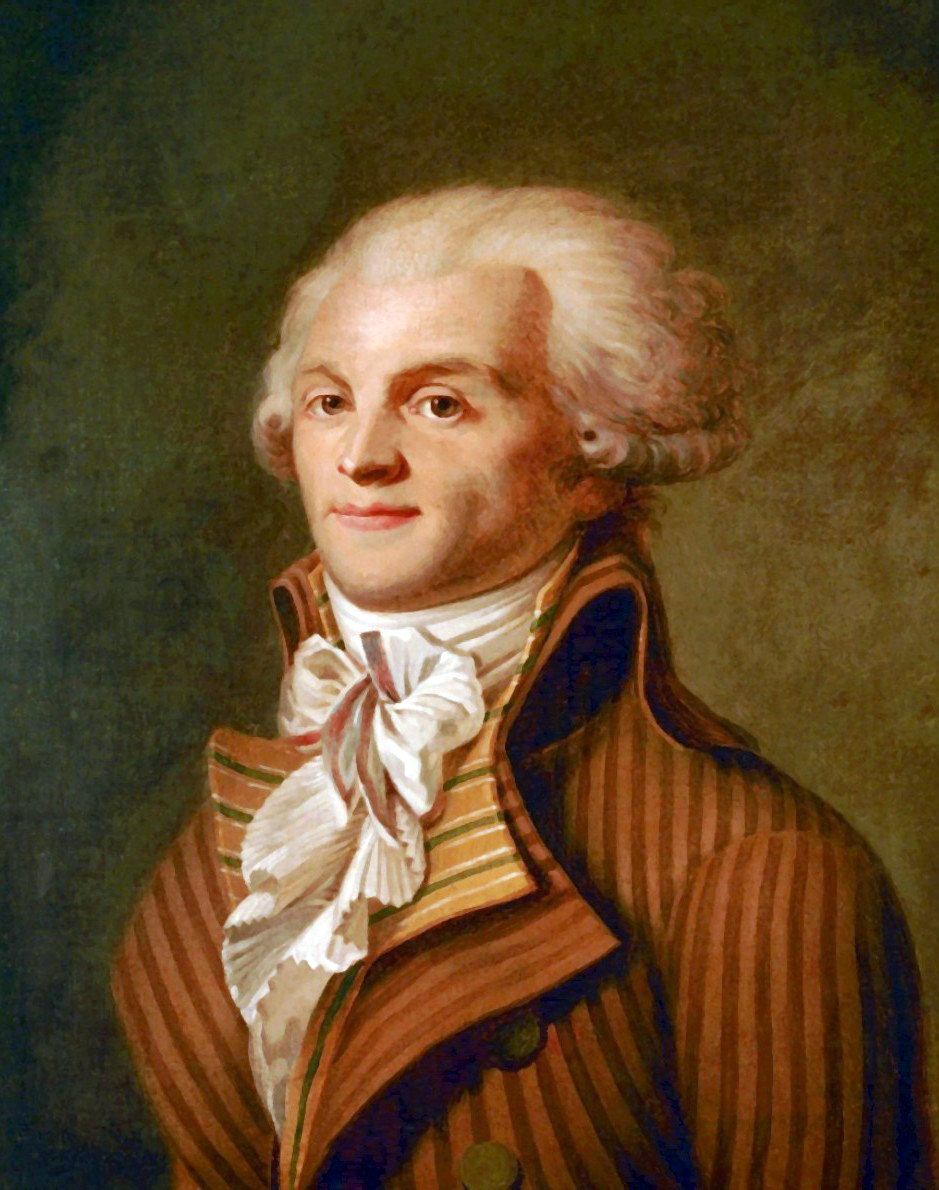Maximilien Robespierre frasi celebri
Origine: Da Ouvres de Maximilen Robespierre, VII, p. 265, Société des études roberspierristes; citato in Rudé.
Origine: Da Ouvres de Maximilien Robespierre, X, pp. 566-576, Société des études roberspierristes; citato in Rudé.
“Noi non combattiamo per quelli che vivono oggi, ma per coloro che verranno.”
Origine: Citato in Biagi 1989, p. 196.
Frasi sulla libertà di Maximilien Robespierre
Origine: 18 dicembre 1791: da Oevres de Maximilien Robespierre, Phénix Éditions, Ivry, 2000.
Origine: 26 luglio 1794; citato in F. Del Giudice, Il latino in tribunale, Esselibri Simone, 2005, p. 1.
Origine: 2 gennaio 1972: da Oevres de Maximilien Robespierre, Phénix Éditions, Ivry, 2000, t. VIII, pp. 81-83.
Origine: Da Oeuvres, PUF, Paris, 1912-1967, vol. VII, pp. 162-63; citato in Domenico Losurdo, Controstoria del liberalismo, Laterza, 2005, p. 135.
Maximilien Robespierre Frasi e Citazioni
Origine: Citato in Enzo Biagi, Quante storie, Rizzoli, Milano, 1989. ISBN 88-17-85322-4; p. 194.
Origine: Da Ouvres de Maximilien Robespierre, X, pp. 462-464, Société des études roberspierristes; citato in Rudé.
Origine: Da Ouvres de Maximilien Robespierre, X, pp. 457-459, Société des études roberspierristes; citato in Rudé.
Origine: Citato in Simone Weil, Riflessioni sulla guerra (1933), in Incontri libertari, traduzione di Maurizio Zani, Elèuthera, Milano, 2001, p. 38. ISBN 88-85060-52-8
Origine: Da Ouvres de Maximilien Robespierre, VII, pp. 161-166, Société des études roberspierristes; citato in Rudé.
“La teoria del governo rivoluzionario è nuova come la rivoluzione che le ha dato vita.”
Origine: 25 dicembre 1793; citato in Rudé.
Origine: Citato in M. Mazzucchelli, Robespierre, Milano, Corbaccio, 1928; Dall’Oglio, Milano, 1955, pp. 38-39.
Maximilien Robespierre: Frasi in inglese
On the Silver Mark (1791)
On the Silver Mark (1791)
Speech of Thermidor Year II (26 July 1794)
"In Defense of the Committee of Public Safety and Against Briez" (25 September 1793)
"Declaration of the Rights of Man and of the Citizen, proposed by Maximilien Robespierre" (24 April, 1793)
Originale: (fr) XXIX. Dans tout état libre, la loi doit surtout défendre la liberté publique et individuelle contre l'autorité de ceux qui la gouvernent. Tout institution qui ne suppose pas le peuple bon et le magistrat corruptible est vicieuse.
On Subsistence, (2 December 1792)
On Subsistence, (2 December 1792)
On Subsistence, (2 December 1792)
Citoyens, vouliez-vous une révolution sans révolution?
"Answer to Louvet's Accusation" (5 November 1792) Réponse à J.- B. Louvet http://www.royet.org/nea1789-1794/archives/discours/robespierre_reponse_louvet.htm, a speech to the National Convention (5 November 1792)
"On the Condition of Free Men of Colour" (31 May 1791)
"On Voting Rights for Actors and Jews" (21 December 1789)
"On Voting Rights for Actors and Jews" (21 December 1789)
“You will follow us soon! Your house will be beaten down and salt sown in the place where it stood!”
Exclamation of Georges Danton passing Robespierre's house on the way to the guillotine, quoted in the memoirs of Paul vicomte de Barras
About Robespierre
“The People is always worth more than individuals.”
As quoted in Portrayals of Revolution, Images, Debates, and Patterns of Thought on the French Revolution, p. 27, by Noel Parker, Southern Illinois University Press
Origine: Principles to Form the Basis of the Administration of the Republic (February 1794)
Originale: (fr) XXXIII. Les délits des mandataires du peuple doivent être sévèrement et facilement punis. Nul n'a le droit de se prétendre plus inviolable que les autres citoyens.
Origine: "Declaration of the Rights of Man and of the Citizen, proposed by Maximilien Robespierre" (24 April, 1793)
"Declaration of the Rights of Man and of the Citizen, proposed by Maximilien Robespierre" (24 April, 1793)
Originale: (fr) XXXV. Les hommes de tous les pays sont frères, et les différents peuples doivent s'entraider selon leur pouvoir comme les citoyens du même état.
“Any institution which does not suppose the people good, and the magistrate corruptible, is evil.”
From article 19 of the Déclaration des droits de l'homme et du citoyen http://saintjust.free.fr/DDHC93.htm (21 April 1793)
Originale: (fr) Tout institution qui ne suppose pas le peuple bon et le magistrat corruptible est vicieuse.
“The secret of liberty is to enlighten men, as that of tyranny is to keep them in ignorance.”
As quoted in Human Rights and Freedoms in the USSR (1981) by Fedor Eliseevich Medvedev and Gennadiĭ Ivanovich Kulikov, p. 221
Originale: Le secret de la liberté est d'éclairer les hommes, comme celui de la tyrannie est de les retenir dans l'ignorance
Variante: The secret of freedom lies in educating people, whereas the secret of tyranny is in keeping them ignorant.
Origine: Public statement (November 1792), quoted in Oeuvres de Maximilien Robespierre (1840), Volume 2, p. 253 http://books.google.com/books?id=iSMVAAAAQAAJ
Misc Quotes
Originale: (fr) Citoyens, vouliez-vous une révolution sans révolution?
Quoting Jean-Jacques Rousseau
Misc Quotes
Last Speech to the National Convention (26 July 1794)
Last Speech to the National Convention (26 July 1794)
Last Speech to the National Convention (26 July 1794)
